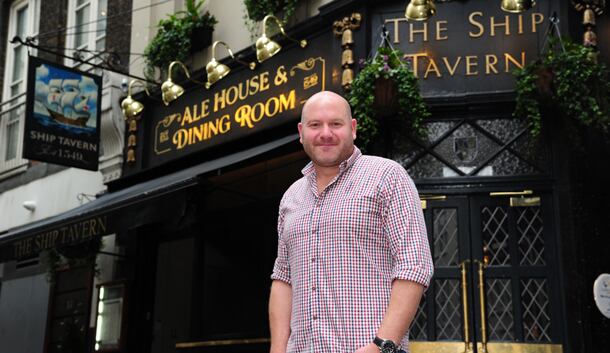One bad pint can cost your business dearly. In fact, 95% of customers would stop visiting a pub with poor quality beer, according to Cask Marque and Vianet’s Beer Quality Report 2016.
The report also reveals that pubs are missing out on £300m of profit due to poor beer quality management.
“Maintaining cellar standards is not rocket science,” says Stephen Trezona, managing director of beer-line cleaning company Clear Brew. “But beer is a volatile product. It will spoil if you cut corners.”
Cellar standards
“The cellar is a pub’s engine room,” says Russel Warren at cellar equipment supplier A-Cask. “A good cellar helps build reputation, increase sales and improve profitability; a poor one can damage the whole business. Yet cellar management is often overlooked.”
His view is supported by figures from the Beer Quality Report 2016: one in three pints served to UK consumers comes through unclean beer lines; and one in 10 pubs has served warm pints over the past year.
Top tips
Ensure all staff understand how hygiene affects beer quality. They also need good cellar training, so they know how everything works and why it’s there.
Edward Theakston, on-trade retail specialist
Achieving good cellar standards means putting in the effort and ensuring staff are properly trained. You need strict processes and procedures to keep your cellar at the correct temperature, ensure regular line cleaning and rotate stock efficiently.
Russel Warren, A-Cask
If you work with independent cask breweries, ask them about tapping procedures to avoid serving ‘green’ beer. Some products take 24 hours to be ready to serve, others
48 hours.
Paul Singleton, InnVictus
A recurring issue is that pubs try to save money, or reduce waste, by extending the recommended weekly line clean, says Paul Singleton, owner of InnVictus Bar & Cellar Services in Lancashire.
“A thorough weekly line clean takes just two hours, and only wastes about two pints,” he says. “Cutting corners is a false economy.”
But with advances in line-cleaning technology, the weekly line clean could soon be a thing of the past, says Clear Brew’s Trezona.
He explains: “We’ve moved line cleaning to a manageable, cost-effective, three-weekly cycle. This maintains quality, reduces waste and risk, maximises yields and saves money compared to the traditional weekly clean.”
Staff training
Star Pubs & Bars runs free courses on cask-ale quality, on-site cellar and dispense training, and a my-stery-customer quality assessment programme.
“We want to help licensees improve cellar standards and draught beer quality,” says Edward Theakston, an on-trade retail specialist who provides the company’s cellar management training.
He says publicans must encourage staff to treat the cellar with respect: “Training and a good understanding of the cellar helps keep standards high. Conversely, if the cold store is treated as a dumping ground, then standards and quality will drop.”
Case study: the Ship Tavern in Holborn, central London

Fourth-generation landlord Ross Evans (below) knows a thing or two about serving quality cask ales. His knowledge and passion helped The Ship in Holborn win the title of Best Cask Ale Pub at the 2015 Star Awards.
In partnership with Caledonian Brewery, his Star Pubs & Bars venue offers four permanent
and two rotating cask ales. It even has its own cask ale — the Ship Tavern 1549.
In order to maintain cellar standards, Evans has introduced log books, a standards manual and cellar training.
“Good cellar management lowers costs and keeps customers coming back,” he claims. “We get higher yields and consistent quality, which drive repeat business, word-of-mouth recommendations and ultimately more profits.”
Installing Heineken’s SmartDispense system has reduced costs, says Evans. Line cleaning now happens monthly, meaning less waste, and temperature and pressure management have improved.
Evans aims to go further, saying: “We want our cellar to look smart, as we encourage customers to come down and
see what we do.”
Leading products and services
Clear Brew line cleaning service
The Clear Brew beer line cleaning service includes all labour, machinery and chemicals, and runs over a 21-day repeat cycle. It’s designed to save time and money, reduce waste, and improve the delivery and quality of draught products.
The company says licensees across the UK save more than £3,000 per year on average by using its service.
A-Cask cellar racking system with fully automatic cask tilts
The A-Cask racking system saves space, as two casks take up the same floor area as one. It saves time: once racked, springs automatically tilt as the cask empties. It saves waste, because the automatic tilting minimises ullage. And it saves money, by reducing waste, which means return on investment can be achieved in a few weeks.
Heineken SmartDispense
Heineken’s SmartDispense is helping the company’s freetrade customers and licensees within its leased estate, Star Pubs & Bars, improve quality, increase dispense yield and reduce waste.
The system cools beer and cider leaving the keg, and generates average annual savings of 4,500 litres of water and 33 litres of line-cleaning chemicals. Pubs achieve an average 8% uplift in sales after installation.
